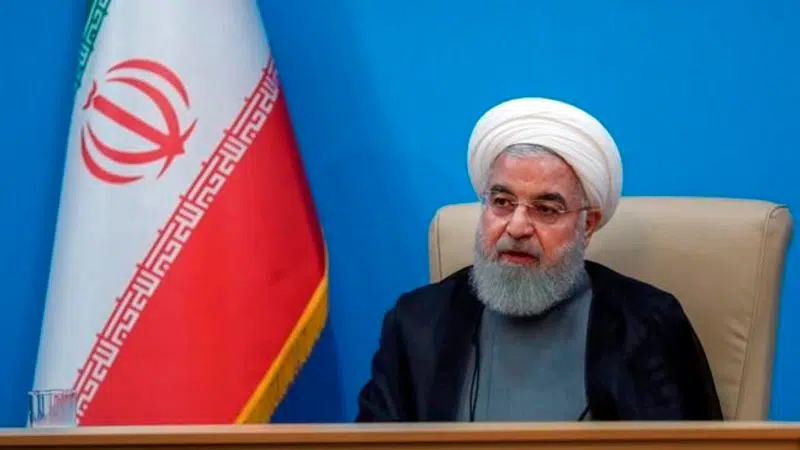
Iran says ‘idiotic’ new US sanctions shut doors of diplomacy
TEHRAN, Iran — Iran warned Tuesday that new U.S. sanctions targeting its supreme leader and other top officials meant “closing the doors of diplomacy” between Tehran and Washington amid heightened tensions, even as President Hassan Rouhani derided the White House as being “afflicted by mental retardation.”
President Donald Trump called that a “very ignorant and insulting statement,” tweeting that an Iranian attack on any U.S. interest will be met with “great and overwhelming force … overwhelming will mean obliteration.” His secretary of state said the Iranian statement was “immature.”
The sharp remarks from Tehran shows the pressure that the nation’s Shiite theocracy and its 80 million people feel over the maximalist campaign of sanctions by the Trump administration. From Israel, U.S. National Security Adviser John Bolton said Iran could walk through an “open door” to talks with America but also warned that “all options remain on the table” if Tehran makes good on its promise to begin breaking one limit from its 2015 nuclear deal with world powers.
The verbal volleys recalled North Korea’s statements about Trump before the dramatic change in course and the start of negotiations with Washington. In 2017, state media quoted North Korean leader Kim Jong Un calling Trump “the mentally deranged U.S. dotard.”


